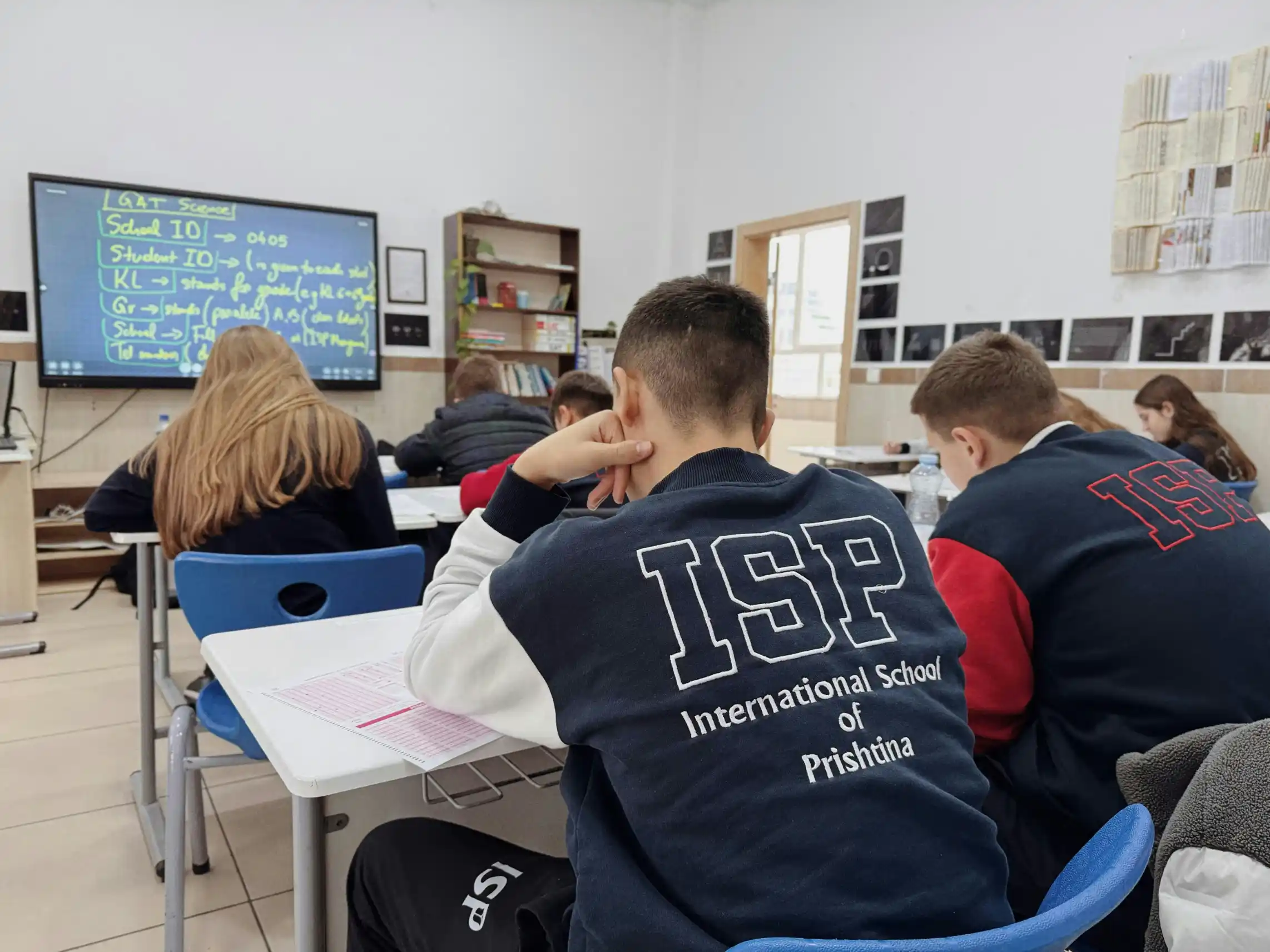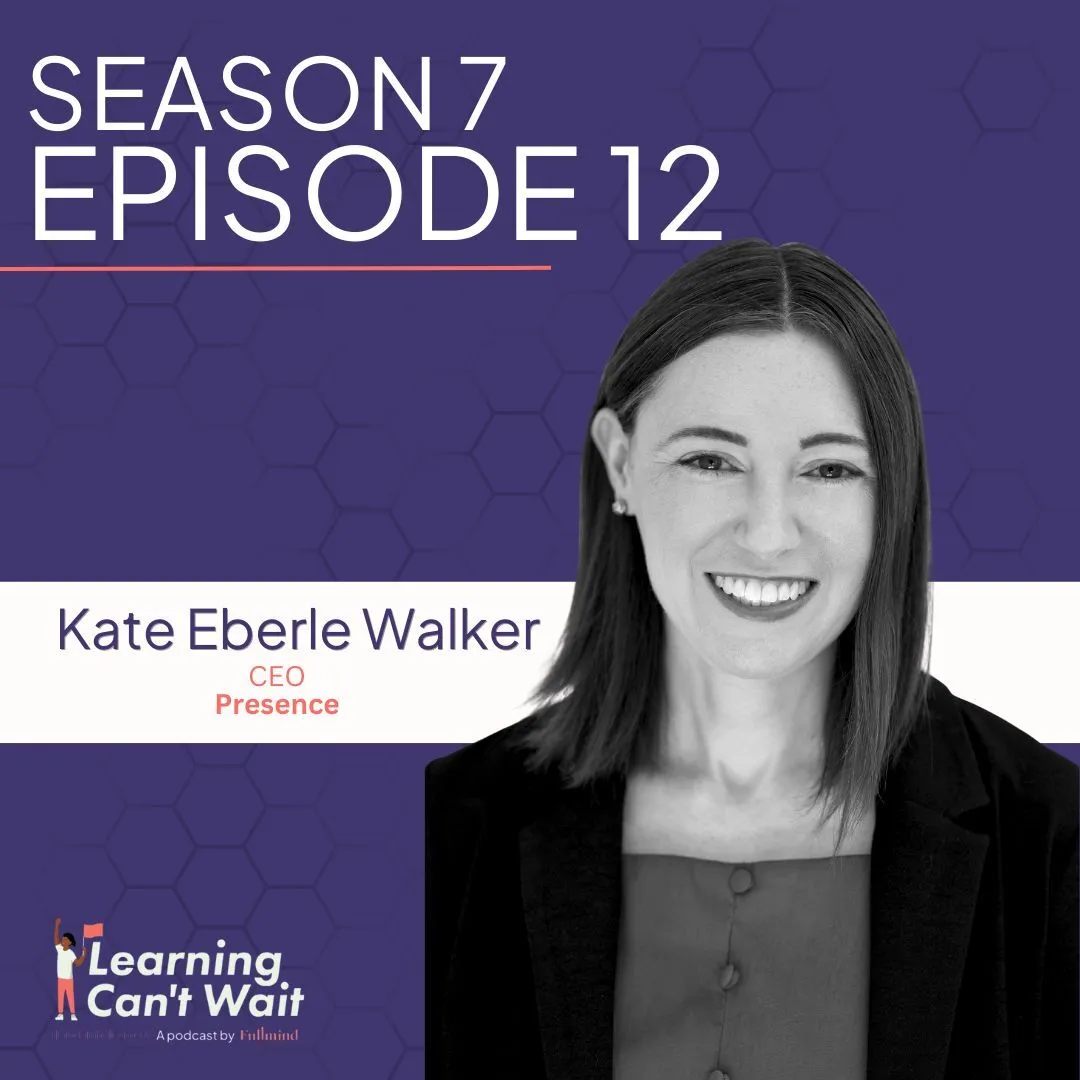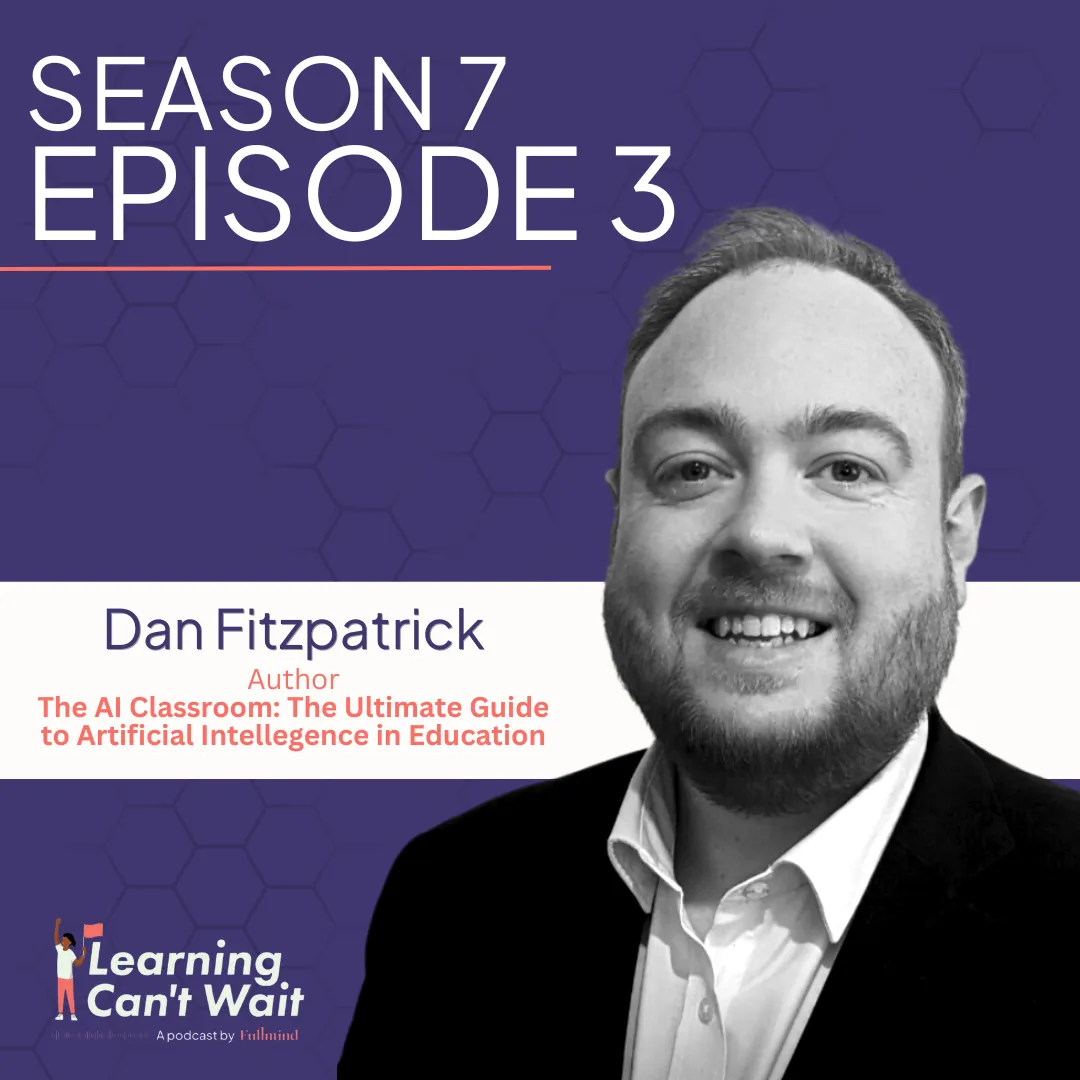For Education Leaders
Get proven strategies and expert analysis from the host of the Learning Can't Wait podcast, delivered straight to your inbox.
High-Dosage Tutoring
Accelerate Growth with Proven Tutoring
- Frequent, data-driven personalized sessions
- Certified, virtual, budget-friendly
- Boosts grades & closes gaps fast
What is a Homeschool Tutor & Do You Really Need One?
%20.webp)
Homeschooling can be rewarding but challenging. As a parent-educator, you're tasked with guiding your child's learning across multiple subjects, addressing their unique needs, and ensuring they stay on track academically all while juggling work, household responsibilities, and other children. It's a significant undertaking that can feel daunting, especially with challenging subjects or learning obstacles.
Good news! You don't have to do it all alone. Various homeschool support options exist, from curriculum packages to co-ops to online resources. A tutor can provide targeted assistance while maintaining the personalized, family-centered approach that attracted you to homeschooling.
This article explores what a homeschool tutor is, their role, benefits for your homeschooling journey, and how to find the right one for your family's needs. Whether you're facing challenges with advanced mathematics or need support in specific areas, understanding a tutor's role can help enhance your child's educational experience.
Defining the Homeschool Tutor Role
A homeschool tutor is an educational professional or subject matter expert who provides supplementary instruction, guidance, and support to homeschooled students in specific academic areas. Unlike the parent-educator who oversees the entire program, a tutor works alongside the primary educator, focusing on particular subjects or educational needs while the parent maintains direction of the overall process.
The distinction between tutor and parent-educator is important. As the parent, you establish the educational vision, select curriculum, and manage the learning environment, while a homeschool tutor brings expertise, fresh perspectives, and specialized skills to address specific areas. They don't replace your role but enhance and support it.
A homeschool tutor differs significantly from a traditional classroom teacher. A tutor provides personalized, one-on-one or small-group instruction tailored to your child's learning style, pace, and needs, instead of managing 20-30 students with standardized objectives. Learning occurs within your established homeschool framework rather than strict school schedules.
Homeschool tutors shouldn’t be confused with full curriculum providers or umbrella schools. While these services supply complete educational programs and handle administrative aspects like record-keeping or legal compliance, tutors supplement your chosen curriculum with additional instruction, clarification, or enrichment in specific areas where your student needs assistance.
What Does a Homeschool Tutor Do?
The responsibilities of a homeschool tutor vary widely depending on your family's needs, your child's age and learning profile, and the specific curriculum support you're seeking. Most tutors provide some combination of these services:
- Subject-Specific Instruction: Delivering expert guidance in challenging academic areas like upper-level mathematics, chemistry labs, foreign languages, or advanced writing, subjects where parents lack confidence or expertise.
- Reinforcing Concepts: Helping students solidify their understanding of material already introduced in the main curriculum by providing additional examples, practice, and explanations.
- Filling Learning Gaps: Identifying and addressing areas where a student has misconceptions or incomplete knowledge that could impede future learning.
- Providing Personalized Attention: Offering instruction tailored to the student's unique learning style, pace, strengths, and challenges important for complex subjects.
- Homework Help & Study Skills: Assisting with assignments and teaching organizational strategies, note-taking methods, time management, and other academic skills.
- Test Preparation: Helping students prepare for standardized tests (like the SAT or ACT), placement exams, or subject-specific assessments with focused practice and test-taking strategies.
- Enrichment & Extension: Introducing advanced topics or exploring areas of interest beyond the core curriculum for students prepared for additional challenges.
- Supporting Students with Learning Differences: Providing specialized strategies and support for students with dyslexia, ADHD, giftedness, or other learning profiles. Working with an Individualized Education Program (IEP) if relevant.
- Offering Feedback: Providing constructive assessment to the student and parent-educator on progress, strengths, and areas that require improvement.
Benefits of Hiring a Homeschool Tutor
Hiring a homeschool tutor can greatly enhance your child's education and your family's homeschooling journey beyond specific tasks:
- Improved Academic Performance: Targeted support leads to a better understanding of challenging concepts, resulting in improved mastery and grades, especially in subjects that pose difficulties.
- Increased Student Confidence: Success in difficult areas builds self-esteem and a positive attitude toward learning. When they feel encouraged, many students work harder and take more academic risks.
- Access to Subject Expertise: Utilize specialized knowledge parents lack, such as advanced physics, upper-level foreign language conversation, music theory, or specific AP/college-prep courses.
- Reduced Parent Stress & Burnout: Offloads teaching responsibilities, especially in difficult subjects or those that create tension in the parent-child relationship. This helps sustain your homeschooling momentum.
- Personalized Learning Experience: Tutoring sessions can be tailored to match your child's exact needs, learning style, pace, and interests in ways that small classroom settings cannot.
- Flexibility and Convenience: Homeschool tutoring can fit your family's timetable, especially with virtual options that eliminate commute time and geographical limitations.
- Objective Assessment & Feedback: An outside perspective on student progress helps identify strengths and weaknesses that parents might overlook due to proximity.
- Support for Diverse Learning Needs: Extra help for twice-exceptional, learning-disabled, highly gifted, or differently-learning students can significantly impact their success.
Homeschool tutoring benefits extend beyond academics, creating a more balanced and sustainable homeschool environment for the family.
Types of Homeschool Tutors
Homeschool tutors vary, and the best fit depends on your family's situation, budget, educational philosophy, and goals. Understanding the types can help you make a better decision.
In-Person vs. Virtual Homeschool Tutors
In-Person Tutors work face-to-face with your child in your home, their home, or a neutral location like a library. This traditional approach offers direct personal interaction, immediate feedback, and hands-on activities that benefit certain subjects or learning styles. The tutor can observe body language and engagement cues directly and adjust their approach immediately. However, in-person tutoring has geographical limitations (finding qualified local experts), scheduling constraints, and potentially higher costs.
Virtual homeschool tutors connect with students through video conferencing and digital tools. This popular option provides access to a wider pool of experts regardless of location, offers more flexible scheduling (including evenings or weekends), and costs less than in-person equivalents. Online tutors can share screens, use digital whiteboards, provide immediate resources, and record sessions for later review. The virtual format works well for older students and tech-savvy families, though it requires reliable internet access and may not suit very young children or certain hands-on subjects without adaptation.
Subject-Specific Expert vs. General Academic Support
Subject-Specific Tutors specialize in one area, such as mathematics, chemistry, Spanish, or writing. They're ideal when your child needs targeted help in a challenging subject or advanced work in a specific field. These specialists offer depth of knowledge to explain complex concepts clearly, anticipate common issues, and advance students further than generalists. For high school students in advanced courses or preparing for college, subject specialists are essential.
General Support Tutors work across multiple subjects, focusing on foundational skills, organization, and study habits. This approach works well for elementary and middle school students needing help in several areas or benefiting from seeing connections between subjects. A general tutor might help with reading comprehension one day and fractions the next, while maintaining consistency in their teaching approach and relationship with the student. For families seeking homeschool help with overall academic progress rather than mastery of specific advanced content, a general tutor provides more value and convenience.
Certified Teacher vs. Subject Matter Expert/College Student
Certified homeschool teachers have formal education credentials, including pedagogical training in child learning, experience with different learning styles, and skills in curriculum development and assessment. They understand educational standards, skill progression, and how to modify instruction for diverse learners, including those with special needs. Many virtual tutoring services provide access to these qualified educators who combine subject knowledge with teaching expertise.
Providers like Fullmind connect schools and families with certified virtual educators delivering live, tailored K-12 instruction. This model ensures access to qualified teachers experienced in structured learning environments, delivered flexibly for homeschool or supplemental needs.
Subject Matter Experts or College Students may lack formal teaching credentials but bring deep knowledge in specific fields. A professional engineer might tutor advanced physics, a published author could guide creative writing, or a pre-med student might excel at teaching biology. These tutors offer practical perspectives and passion for their subjects, sometimes at lower costs than certified teachers. However, they may lack formal training in teaching methodology or experience supporting students with learning challenges, making them better suited for motivated, independent learners.
How to Find and Evaluate a Homeschool Tutor
Finding the right homeschool tutor requires careful consideration, as they will significantly impact your child's education. Researching and vetting potential tutors increases the likelihood of a successful partnership.
Finding Potential Tutors:
- Recommendations from homeschooling families, co-ops, or support groups often lead to the best matches.
- Online tutoring platforms and agencies connect families with virtual homeschool educators.
- Local colleges or universities may keep tutor lists in education or subject-specific departments.
- Community centers, libraries, or homeschool resource centers that host or suggest educational services.
- Social media homeschool groups where members share experiences with local tutors.
Vetting Process:
- Check qualifications and experience, including degrees, certifications, and years teaching or tutoring in the relevant subject(s).
- Request and follow up with references from other homeschooling families about teaching style and outcomes.
- If age-appropriate, interview potential tutors with your student to assess personality fit and communication style.
- Discuss your teaching philosophy and approach to align your educational values with your child's learning needs.
- Clarify expectations for scheduling, cancellation policies, homework, and communication between sessions.
- Verify background checks for in-person tutors working directly with your child; reputable agencies usually handle this.
Key Questions:
- What is your experience with [Subject/Age Group/Learning Need]?
- How do you structure tutoring sessions and adapt to various learning styles?
- What do you do when a student doesn't understand a concept after several explanations?
- How do you assess student progress and communicate that to parents?
- What are your expectations of the parent and student during sessions?
- What are your rates, payment policies, and cancellation procedures?
- Do you have experience with homeschooled students?
- Will you coordinate with our existing curriculum, or use your own materials?
- Can you provide proof of relevant background checks or complete one?
Thoroughly researching homeschool tutors ensures you find someone with the necessary knowledge who connects well with your child and respects your family's homeschooling approach.
Integrating a Tutor into Your Homeschool Routine
Once you've found a suitable tutor, you need to plan and communicate clearly to incorporate their sessions into your homeschool routine to maximize benefits.
Communication is essential to a successful tutoring relationship. Establish open channels between yourself, the tutor, and your student regarding goals, curriculum alignment, challenges, and progress. Be transparent about your child's learning style, strengths, struggles, and any sensitive issues. Regular check-ins, monthly or quarterly, ensure alignment and allow timely adjustments to the approach.
Scheduling tutoring sessions at consistent times that match your student's energy levels and learning rhythms improves effectiveness. Consider if your child learns best in the morning or afternoon, needs breaks between subjects, or benefits from tutoring on lighter days. Protect these times from other appointments to maintain consistency, which is essential for building rapport with the tutor.
Setting clear expectations helps everyone understand their role. Define specific, measurable goals for the tutoring sessions, like improving reading fluency, mastering algebra, or completing a science project. Be clear about what you expect the tutor to handle independently versus where I would like to remain involved. Also clarify how progress will be measured and reported.
Providing context helps the tutor integrate with your homeschool program. Share your primary curriculum, teaching approach, recently covered topics, and upcoming units. This allows them to complement your main instruction, reinforcing concepts using consistent terminology and methods.
Check your local and state homeschooling regulations regarding supplemental instruction, as requirements vary. Some states have specific provisions about who can provide instruction in a homeschool setting.
Conclusion
A homeschool tutor can be a valuable partner in your family's educational journey. The right tutor provides targeted academic support tailored to your child's needs while allowing you to maintain the freedom and flexibility of homeschooling. Whether you need specialized knowledge in advanced subjects, support for learning challenges, or a new approach to obstacles, the right tutor significantly impacts academic outcomes and the homeschooling experience.
The benefits extend beyond improved grades. Student confidence, reduced parental stress, access to specialized expertise, and personalized learning can transform frustrating homeschooling aspects into growth and connection opportunities. By understanding the types of tutoring, vetting potential tutors, and integrating their support into your routine, you are taking a proactive step toward educational success.
Seeking homeschool help isn't a sign of failure but of wisdom. It shows you recognize when specialized support can benefit your child and are willing to incorporate it into your homeschooling toolkit. Just as you might join a co-op for social opportunities or use online resources for certain subjects, a tutor represents another personalized element in the tailored education you're creating for your child.
For Education Leaders
Get proven strategies and expert analysis from the host of the Learning Can't Wait podcast, delivered straight to your inbox.
Let’s Work Together
We’ll review your application and get in touch!




.webp)
.webp)



.webp)



.webp)
.webp)


.webp)
.webp)
.webp)











































.webp)




























.webp)

.webp)


.webp)